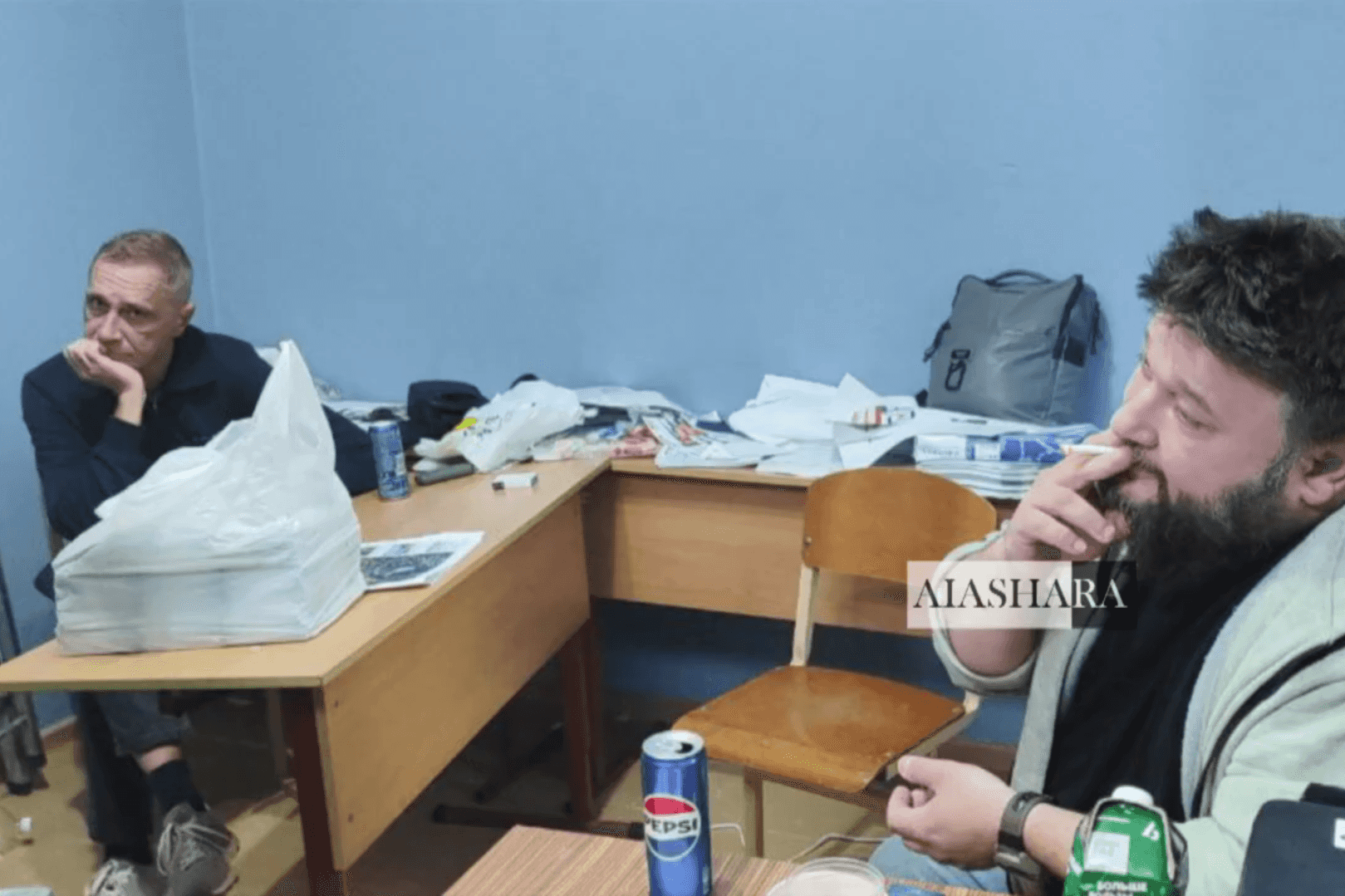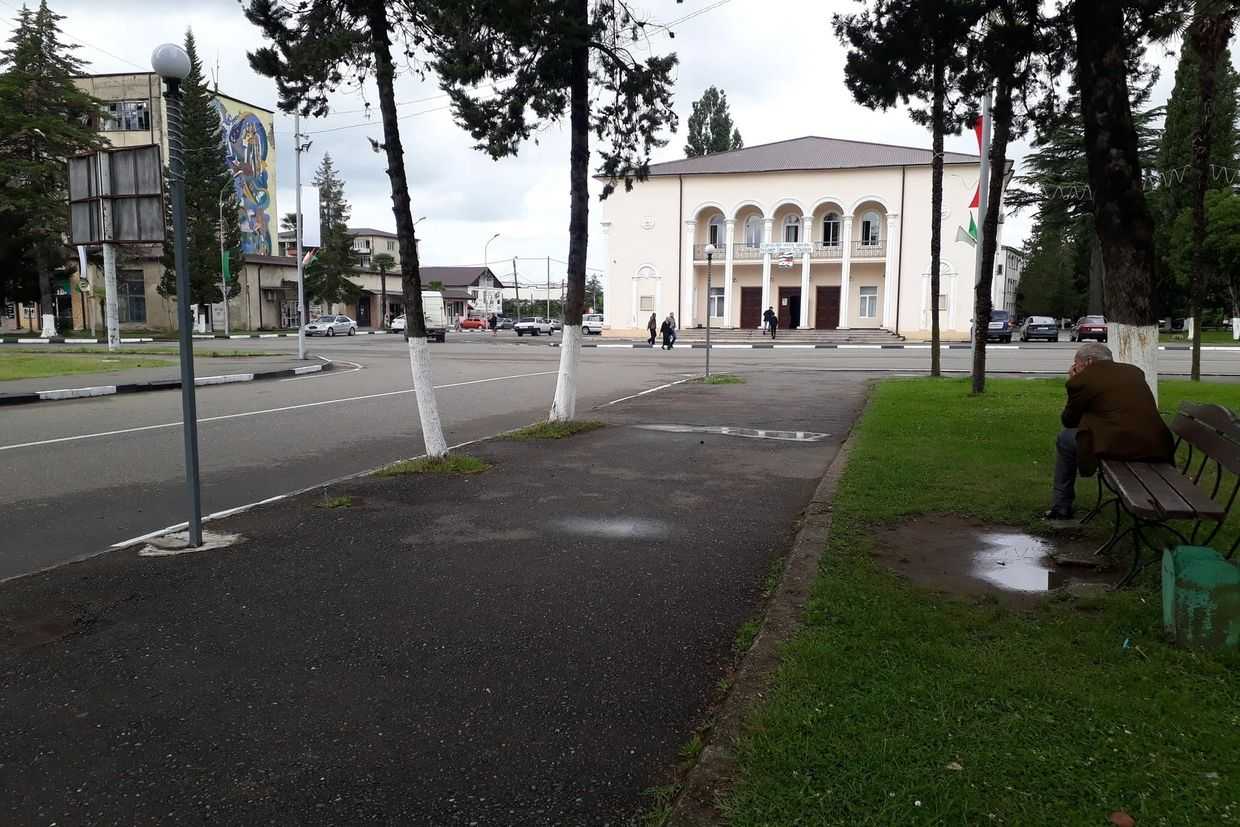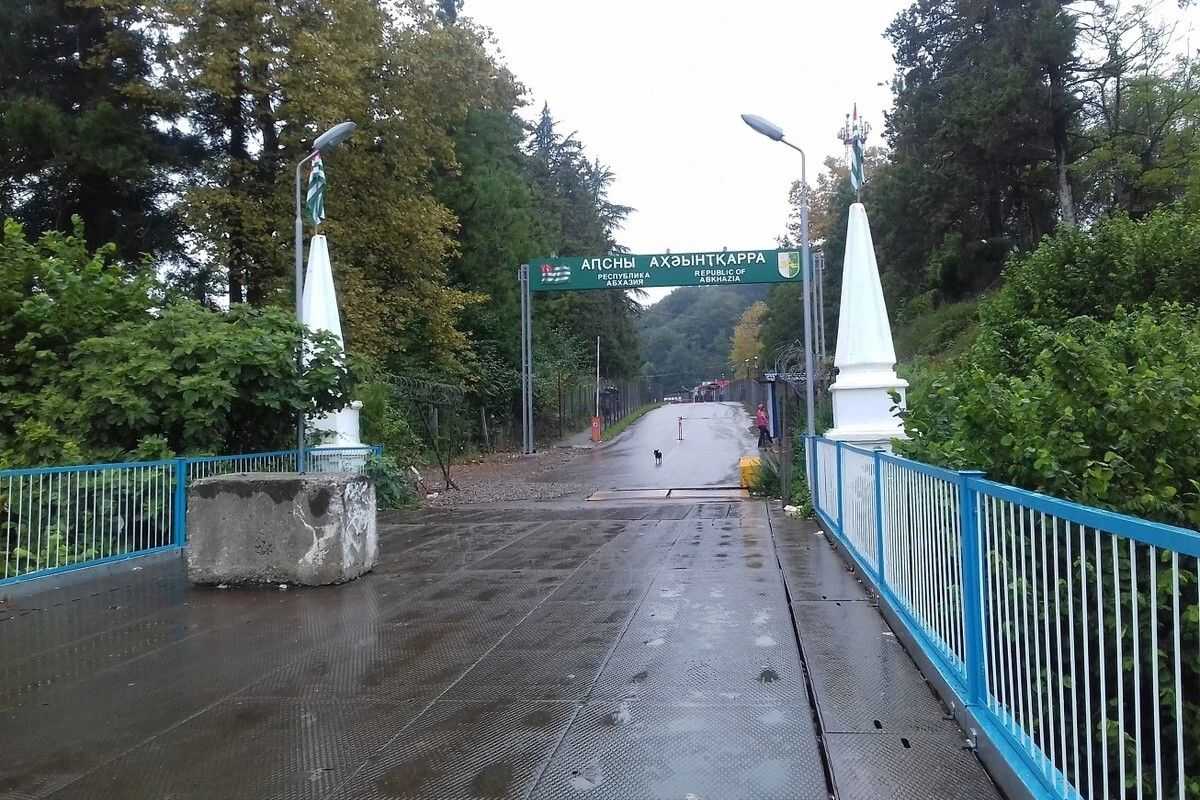
Abkhazia’s medical community has rallied against the Prosecutor’s Office in a twisted case of alleged embezzlement of state funds at Abkhazia’s Republican Hospital. Meanwhile, the chief prosecutor fell under scrutiny during a special parliamentary hearing for allegedly ordering an unlawful police search.
The chief physician of the Republican Hospital, Apollon Gurguliya, together with his deputy, Georgy Vouba, is suspected of embezzling state property. The Prosecutor’s Office has found that a private laboratory has been established at the hospital’s premises using equipment and supplies purchased with state funds.
The Republican Hospital is located in downtown Sukhum (Sukhumi) and operates under the auspices of Abkhazia’s Ministry of Health.
According to the Prosecutor’s Office, Gurguliya and Vouba, in collaboration with the hospital’s accountant, Aslan Tskua, cost the hospital nearly ₽1.3 million ($17,000). Tskua registered himself as an individual entrepreneur and registered his private laboratory with the Ministry of Health — and began to run it on the hospital’s premises.
The hospital supplies were allegedly ‘donated’ to Tskua’s commercial laboratory by Gurguliya and Vouba in 2018 and 2019.
An odd request
After concluding an initial inspection, the Prosecutor’s Office requested that the Minister of Health discipline and hold accountable the officials implicated in the alleged embezzlement.
Several days later, on 25 December, Abkhazian media published Vouba’s appeal, in which he claimed the prosecutor’s inspection was ‘one-sided’ and ‘not comprehensive’.
According to Vouba, the doctors who had been asked to testify were biased, as they had long been at odds with him. He also asked why he wasn’t criminally prosecuted if the alleged embezzlement really took place.
The criminal case followed soon after.
On 9 February, Gurguliya, Vouba, and Tskua were charged with embezzlement, among other crimes. The next day, police visited the Republican Hospital to inspect the premises and interrogate the suspects. Allegedly, the three men weren’t there. Police used a crowbar to enter the management’s offices to conduct a search.
The authorities initially denied the presence of the investigators at the hospital. Yet, soon after, the deputy speaker of the parliament, Alkhas Dzhindzholiya, admitted that the investigation was indeed being carried out. In a statement, the General Prosecutor’s Office wrote that security forces visited the hospital to ‘protect the facilities’ that were being investigated and force had to be used only because hospital staff obstructed the investigation.
Doctors react
Abkhazia’s medical community issued an open letter signed by 300 people. They appealed to President Aslan Bzhaniya, the speaker of parliament, and the media, to conduct a parliamentary investigation into the legality of the actions of the Prosecutor’s Office.
The signatories were outraged by the court’s inaction against the law enforcement and claimed that the authorities addressed the court to approve the search only after it took place.
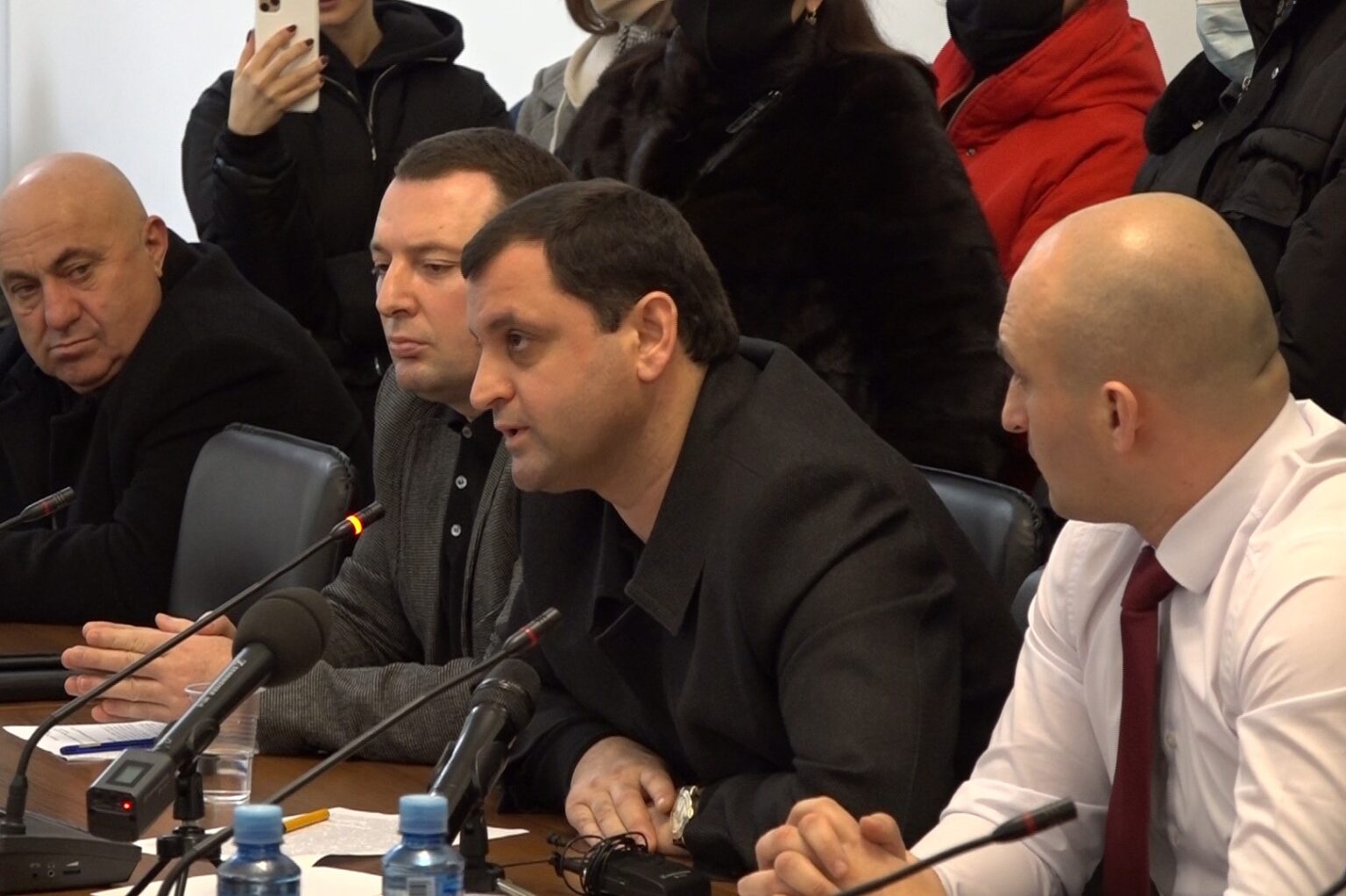
In reaction to the doctors’ open letter, Abkhazia’s parliament — the People’s Assembly — held an extended meeting of the parliamentary Committee on State and Legal Policy on 15 February. MP Valery Agrba, the committee’s chair, visibly upset with the prosecutor general, Adgur Agrba, and his deputy, asked why the Prosecutor’s Office became so invested in this particular case, while there are many other high-profile corruption cases with sums much higher than the alleged hospital embezzlement.
‘We invited the chief physician [Gurguliya] and explained to him that although he was a respected person in the republic there were certain violations, and the damage had to be compensated. I understood from that conversation that no one was going to pay compensation for the damage’, Prosecutor General Adgur Agrba said, adding that this was why the criminal cases were opened.
According to the prosecutor general, the police did their job without exceeding their powers but were met with ‘desperate resistance’ from the hospital staff.
‘We were barred from accessing Georgy Vouba’s office, despite the fact that he’s suspected of a very grave crime. Investigators have the right to detain suspects and interrogate them. But it wasn’t our intention to detain them in the hospital’, Adgur Agrba said.
‘We needed to conduct the search urgently because there was a suspicion that relevant documentation could be destroyed. Georgy Vouba refused to open the office and didn’t agree to have the search conducted in his presence. Therefore, we had to ask the police for help.’
Vouba was in another part of the Republican Hospital when the search was carried out, he suffered a heart attack when he learned of the search. He was subsequently placed in intensive care.
Eyewitnesses testify
The staff of the Republican Hospital, who witnessed the incident, also testified in front of the parliamentary committee. According to them, dozens of armed security officials with dogs tried to enter Gurguliya and Vouba’s offices, while they attempted to bar their entrance.
‘It was me who shouted that they could only enter Vouba’s office over my dead body’, the head nurse, Tsiala Tsvizhba, told the MPs.
‘Why? Our institution has been left without management, the head physician is away, so is his deputy. I took the responsibility and said I wouldn’t let them [the police] in. They pulled out a crowbar. I ask them, “By what right? On what basis? Yes, I’m not a lawyer, but I also understand things” ’.
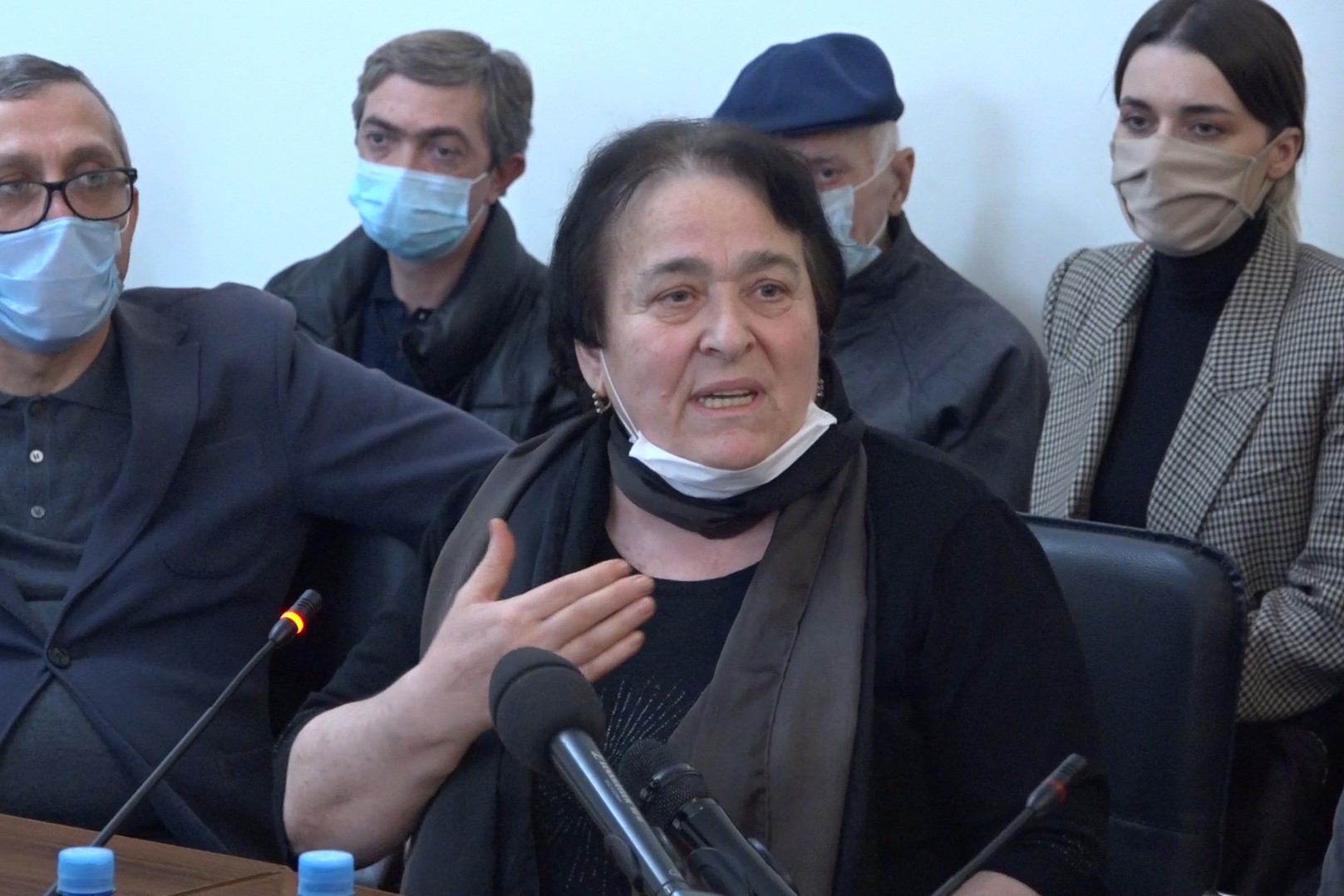
Astamur Ivanba, head of the traumatology department, spoke up in support of his colleagues. He argued that Gurguliya and Vouba made a ‘great contribution to Abkhazian healthcare’ and asked the parliament and the president to conduct an objective investigation into the incident.
The head of the Children’s Hospital, Igor Dzhopua said that the medical community wasn’t concerned by the investigation itself, but by its form.
‘For the past thirty years, many high-profile crimes took place in Abkhazia, but I’ve never heard about someone being detained like this. It’s as if they were terrorists or serial killers. And one of them is a Hero of Abkhazia [a veteran of the 1992–1993 war]’, Dzhopua said.
According to MP Almas Dzhapua, the police’s action, together with a number of other complaints about the situation in the Prosecutor’s Office, may serve as a reason for the resignation of the entire leadership of the General Prosecutor’s Office.
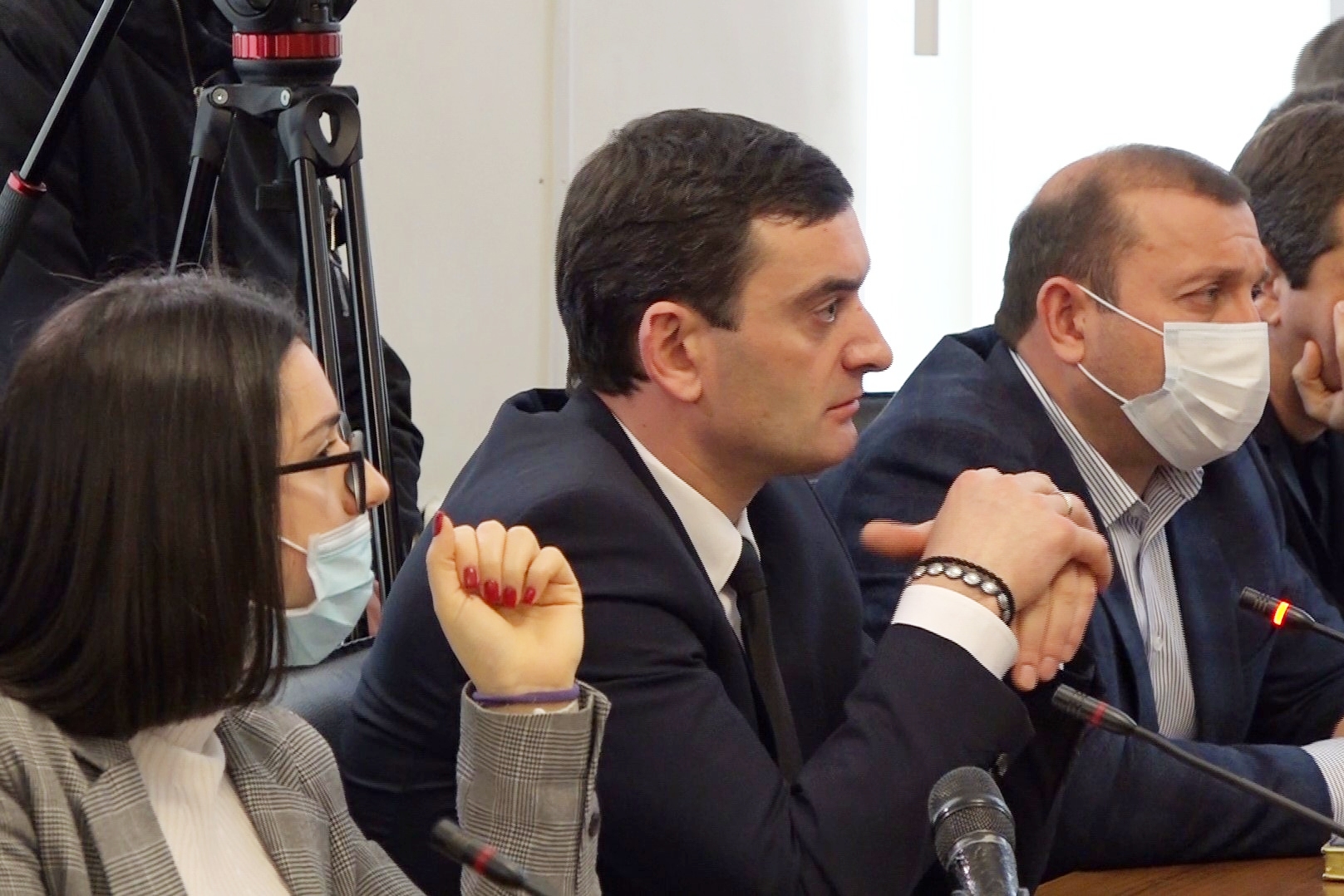
Meanwhile, MP Garri Kokaya said that the operation at the Republican Hospital looked like an attempt to create the appearance of a successful fight against corruption.
The head of the Committee on State and Legal Policy, MP Valery Agrba, vowed that the Prosecutor’s Office actions would have consequences.
‘With the statement on the website of the Prosecutor’s Office, you discredit yourself as lawyers. When you say that there has been embezzlement of public funds you should consider it a crime, instead of imposing disciplinary sanctions’, Agrba said.
Judgement day
Georgy Vouba appealed the criminal proceedings against him to the Sukhum City Court — he has not yet received a response. On 16 February, a judge decided to merge Vouba’s case with that of Gurguliya and Tskua, thereby increasing the severity of the charges faced by Vouba.
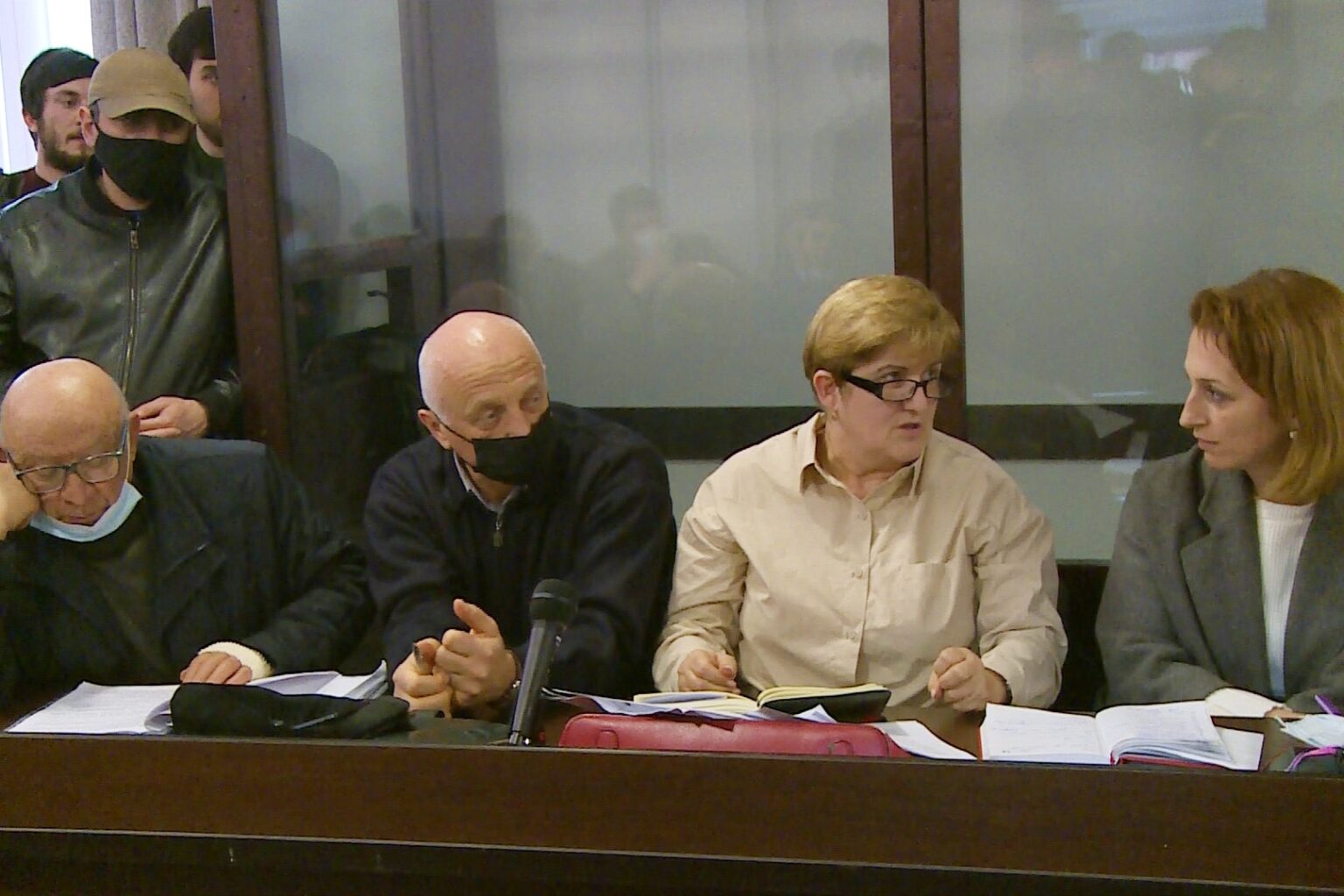
According to case files cited by the judge, Chief Physician Apollon Gurguliya had granted permission for the private laboratory to operate, since Tskua, as an individual entrepreneur, had a licence from the Ministry of Health, but he refused to donate the supplies and equipment to the lab. Gurguliya claimed he could have been tricked by Georgy Vouba into signing the permission to donate equipment.
‘He [Gurguliya] doesn’t remember the circumstances of signing the agreement. He believes that the document was handed over to him among other documents for signature without examining their contents’, Judge Yekaterina Tyrkba said.
Gurguliya has additionally blamed the head of the Pharmacy Department at the Ministry of Health, Akhra Adzhba, for the trickery. Vouba and Tskua face imprisonment from five to ten years, Gurguliya — from six to twelve years with confiscation of property.
The main terminology in this article is that of the author. For ease of reading, we choose not to use qualifiers such as ‘de facto’, ‘unrecognised’, or ‘partially recognised’ when discussing institutions or political positions within Abkhazia, Nagorno-Karabakh, and South Ossetia. This does not imply a position on their status.


